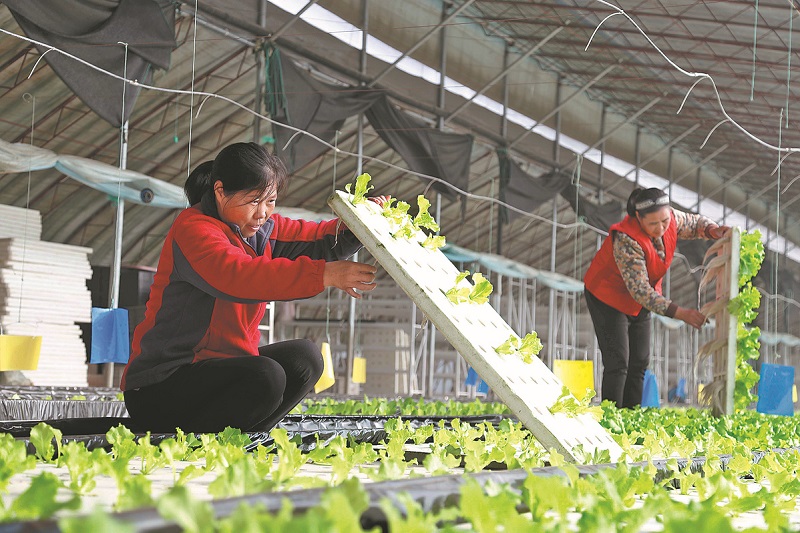China promotes legislation on agricultural R&D to ensure food security

Farmers check the progress of hydroponic vegetables in Xingtai, Hebei province, on Oct 31. [Photo/Xinhua]
The 11-part law, which will come into effect in June, will give strong State backing to invigorating the seed sector and ensuring seed security.
In one part dealing with seed production, the law stipulates that the Chinese government is obliged to conserve food germplasm resources. It also says it must support efforts to commercialize next-generation breeding techniques and roll out homegrown food species that are free from the threat of embargo by agricultural powerhouses in the West.
At the NPC Standing Committee session that passed the law, the top legislator, Zhao Leji, briefed lawmakers on the findings of a high-level inspection that was carried out from May to November last year to assess the progress in the seed sector since the Seed Law was last revised in 2022.
He listed a number of highlights in agricultural technology advancement, including the improved research prowess of seed companies, whose investment in research and development climbed to 6 billion yuan ($839 million) last year, an increase of more than 50 percent from 2015.
But he also said the supply of quality seed was inadequate and that even though the preservation of germplasm resources had been improved, efforts to use them were still lagging.
Zhao said there had been an overreliance on crossbreeding to enhance existing crop varieties, with insufficient attention paid to research powered by next-generation techniques such as gene editing and artificial intelligence, and that despite the explosive growth of seed companies since 2016, many lacked research capabilities.
That situation — coupled with a lack of knowledge transfer between companies and researchers — had hampered progress toward a market-oriented breeding environment, Zhao said, citing the example of Gansu province, where 85 percent of seed companies operated by conducting trial planting of new food varieties developed by their clients rather than designing them in-house.
"Most companies are unable to conduct R&D," he said.
Zhao reiterated China's commitment to the protection of corporate seed breeders' intellectual property rights. In the past they have had to grapple with lengthy and costly legal procedures to seek compensation when their interests have been jeopardized.
"The seed industry is one of national strategic importance," he said. "We must fully implement the Seed Law and promote the sector's vitalization with legal provisions."



